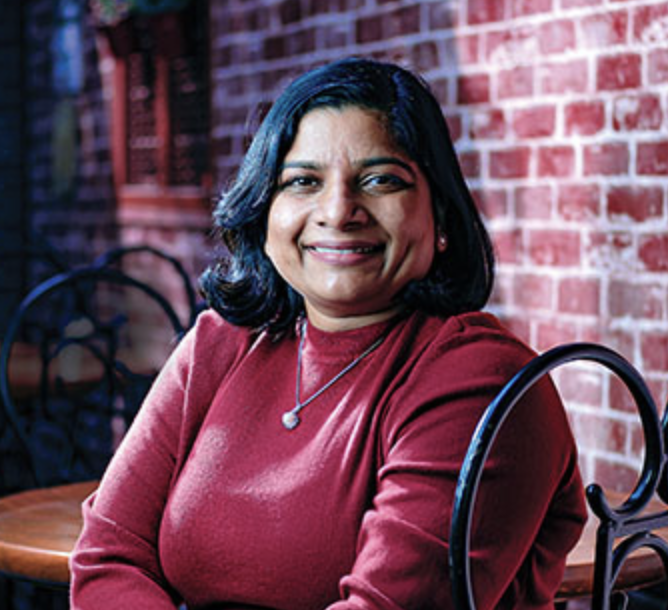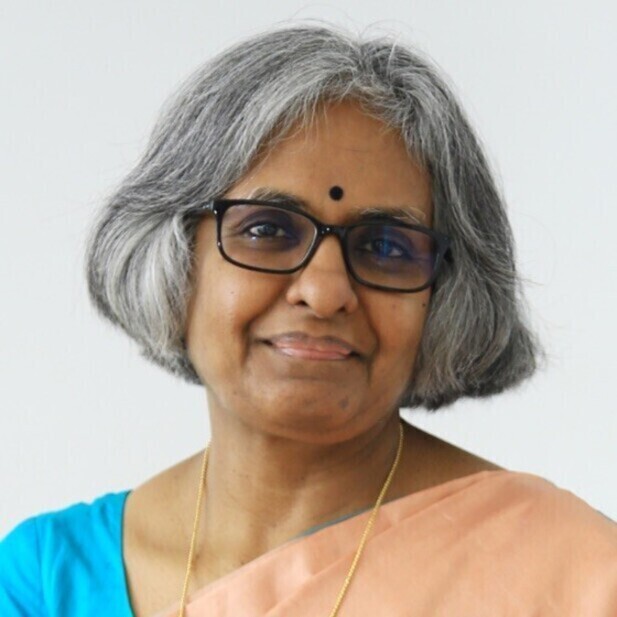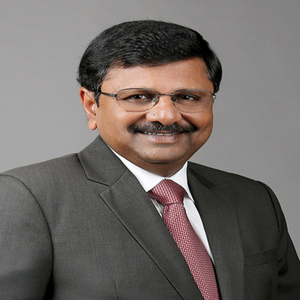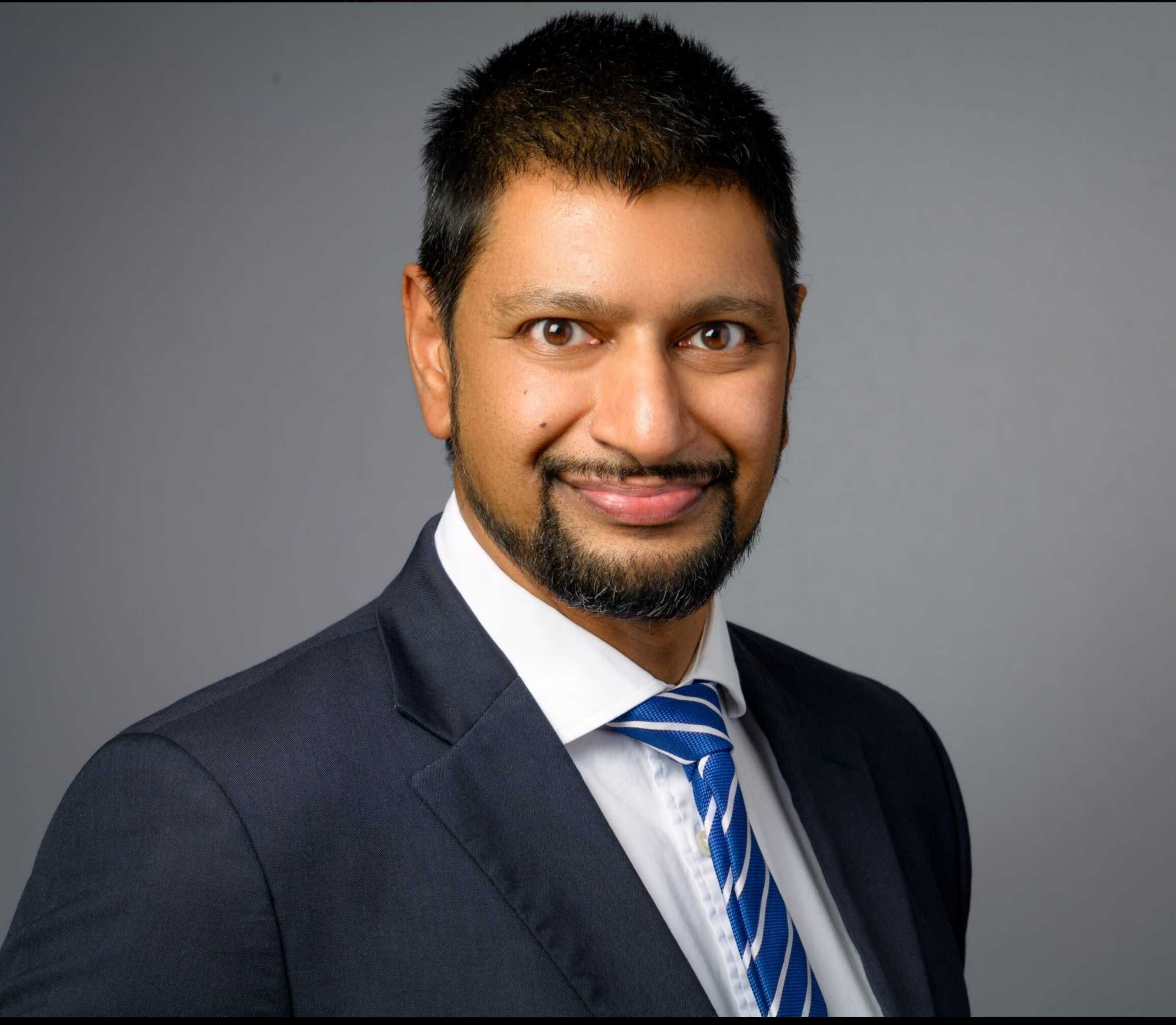Frederic de Melker
Ex Managing Director at Rakbank
Educational Background
- Saïd Business School, University of Oxford
- The Open University, Buckinghamshire
- Heriot-Watt University
Work Experience
- Rakbank
- Emirates NBD
- Citibank

Ex Managing Director at Rakbank
Educational Background
Work Experience





In this episode of Nuclei's podcast, we are thrilled to introduce Mr. Frederic de Melker, a seasoned banking professional with an illustrious career spanning over two decades across prestigious institutions like Rakbank, Emirates NBD, and Citibank.
Engaging in a candid conversation with Ankur Joshi, the CEO and founder of Nuclei, Mr. Melker brings a wealth of knowledge and expertise to the forefront of the discussion, having witnessed digital disruption in banking firsthand and deciding to build an ecosystem with a customer-centric approach.
This episode promises a captivating exploration of Frederic's perspectives on digital transformation, disruptive innovation, and the future of financial services.
--Transcript Begins--
Ankur Joshi:
Hi, Everyone. I'm Ankur Joshi, founder and CEO of Nuclei. Nuclei is where we work with banks and Telcos, aiding their digital transformation journeys through our products. Today on this podcast, I'm honored and excited to welcome an inspirational leader, Frederic de Melker, who has over 20 years of banking experience, holding various leadership positions across personal and world banking. He's widely regarded as an authority in these fields.
Welcome to the podcast, Fred. I'm really excited to host you. Let me begin by delving a bit into your personal journey before we discuss what's happening in your life and the next steps.
Frederic de Melker:
Thank you for having me, Ankur. Regarding my personal journey, as you mentioned, I've been a retail banker for many years across different countries in Europe and the Middle East, including UAE and Egypt.
Instead of delving into my full CV, I'll highlight the last four or five years of my time in Egypt, a country with over 100 million people and a robust banking network. However, I worked for a bank with only 70 branches nationwide. Observing the digital disruption in the industry during this time made me question my understanding of the changing landscape. I took a trip to Silicon Valley for two weeks, engaging in insightful discussions with industry leaders from companies like Tesla and Netflix. During the 16-hour flight back to the Middle East, I reflected on the necessity of adapting to these changes.
I realized that failure to do so could jeopardize my career within five years. Now, five years later, I've retained my position, but I chose to step away from traditional retail banking and focus on transforming banking practices, particularly in payments and digital platforms. This journey has been incredibly exciting and rewarding.
Ankur Joshi:
That's amazing! It's also noteworthy that you were awarded the Finnovator of the Year award by Finnovex in 2021. Having known you for some time now, I can attest to your entrepreneurial energy, which is quite refreshing in the banking sector. Not many bankers possess this trait. You've spoken about being an entrepreneur who disrupts the bank from within. Could you elaborate on how you go about this and the key characteristics needed for success in executing such disruption?
Frederic de Melker:
Yeah, I think entrepreneurship is not an easy thing. Entrepreneurship is difficult yet different. For me, that period of entrepreneurship was the right journey to come to a point like today, moving into the real stuff. Entrepreneurship is something that banks are still lacking.
In 2019, I read an Accenture report stating that only 12% of banks have a real disruptive digital strategy, 38% think they have something, and 50% are clueless. So, among bankers, there aren't many true entrepreneurs. I think this is linked to the risk aversion and groupthink prevalent in banking. I'm not a Blockchain specialist, but I've done some academic work on it to understand what it is. In the banking industry, everyone talks about Blockchain without really understanding it. These buzzwords are mainly empty boxes because banks try to solve problems from a PNL perspective, which isn't feasible.
Fintechs can start from scratch, but banks can't simply wash away old systems. They need to move forward while managing legacy systems. Low activity in entrepreneurship is due to knowledge gaps, complexity, and siloed working. Crossing these silos is challenging. The hierarchical and political structures within banks exacerbate these issues. Most decision-makers in banks are over 50, which affects their willingness to innovate. Personally, these were the main issues for me. If you find yourself in a situation where others don't understand you or you're sure you're not wrong, it might be time to consider moving to a more dynamic part of the financial industry.
Ankur Joshi:
But if you look at it from a holistic perspective, banks are a very powerful platform. They have a lot of distribution. As you rightly put it, they are a big oil tanker while fintech are some entities which can start from scratch. But the bigger difference is that an oil tanker has a lot of distribution while fintech, generally starting from scratch, are also starting from scratch on the distribution side.
So what is your opinion? Is it a collaborative industry, or is it a collaboration between fintech and banks which is going to eventually win, where fintech is essentially leveraging the distribution of the bank, or do you think fintech are going to completely disrupt the banks over the next 5 to 10 years?
Frederic de Melker:
It's a good question. It depends, of course, a little bit on the type of fintech we're talking about, right? There are fintechs that want to compete with banks in certain areas, and then there are those that aim to find solutions for banks to enhance their distribution networks for the future. Banks currently have the distribution network, no doubt about it, but that may change.
Micahel Corbett, the former CEO of Citibank, mentioned back in 2013 that they were transitioning into a tech company. Five years later, the stance changed, acknowledging that fintech would handle the tech while banks retained the network and customers. However, this perspective might not hold in other industries. Supermarkets, for example, traditionally had full distribution, but home delivery services are disrupting this model. It's akin to the story of Amazon and bookstores; the digital platform disrupted the traditional distribution network.
So, the idea of banks having the network might be short-term. Fintechs are likely to develop new banks, possibly through mergers with existing banks or significant fintech players. The current challenge for fintechs is audience acquisition, whereas banks struggle to serve customers in the manner they desire. The clash lies in audience ownership, determining who adopts services, which remains uncertain.
Ankur Joshi:
You're now transitioning from your banking experience to become an entrepreneur, tackling one of the issues by building a platform. Could you briefly describe the problem you're addressing and your progress? What are your next steps?
Frederic de Melker:
Certainly, the core issue revolves around audience ownership, as discussed earlier. Historically, customers had to join a banking ecosystem to access financial products. While this shifted to multiple banking relationships in the 1990s, digital disruption is pushing toward personalized ecosystems. I envision a future where individuals curate their own ecosystems, dictating their financial interactions.
This shift is underway in various industries, and banking is no exception. I'm working on constructing a platform that aligns with this vision, enabling customers to dictate their financial needs rather than being dictated to by banks or fintechs. This concept keeps me up at night, figuring out how to build a platform that truly caters to individual needs, unlike the generic promises made by banks. It's about empowering customers to drive the industry, not the other way around.
Ankur Joshi:
That's a compelling concept, shifting the power center to the customer and making them the focal point of the platform. Apart from the financial industry, which other platforms impress you the most? Books like "The Innovator's Dilemma" by Clayton Christensen explore disruptive innovation versus sustainable innovation. Additionally, "Modern Monopolies" delves into various platform models that have emerged in recent decades. Are there any other platforms that stand out to you, and why?
Frederic de Melker:
Well, if I think about the marketplace, there is one global player, right? It's very interesting to see what is unique about Amazon. It's not just because it's Amazon, but because it's a global platform that seamlessly fits into every culture. Understanding this cultural aspect is key in building and communicating effectively with customers. This aspect varies greatly across regions, even within neighboring countries like Belgium and the Netherlands. Translating this cultural understanding into a platform is crucial.
On a smaller scale, I'm impressed by fintech companies addressing ecosystem challenges, like Policybazaar in India or Grab in Singapore. They're moving towards open architectures for various products, not just wealth management. It's not just about presenting options to customers; it's about understanding their needs and facilitating communication between product and service providers. Banks should shift their focus from distribution to product development tailored to specific customer needs. Imagine if banks invested all their energy into building the right products rather than distribution networks. It would revolutionize banking.
Ankur Joshi:
Indeed, many banks globally have adopted this approach, but it's still a minority. More work needs to be done to ensure healthy competition in the banking sector, benefiting customers. Fintech companies can lead by example and collaborate with banks to drive this change.
Frederic de Melker:
Absolutely. We can't rely on just 12% of banks to lead the way. We need broader participation in this customer-centric approach. Fintech can guide traditional banks by demonstrating alternative strategies and fostering collaboration.
Ankur Joshi:
Oh, okay. This is really good. Thank you. Now, coming back to your personal journey, which is just getting started, many people in the industry, including myself, look up to you as a leader. So, if anyone wants to work with you on your journey, what advice would you offer them, or how can they make it happen?
Frederic de Melker:
Well, you need to be 100% driven by passion, and it needs to move fast. Passion fuels speed. If you want to effect change, it's akin to altering a stone in a river—the river keeps flowing. It's unstoppable. There's risk involved; it's a different lifestyle—a challenging one.
The rewards aren't immediate. However, historical examples, even predating the digital revolution, show that those who change the world aren't always understood or supported initially. They're simply driven by an unwavering belief in what can and should happen. This drive is something inherent in human beings. Those who work with me, or whom I work with, share this common trait. Some may be at a junior level and seek to learn from others, while others, like myself, find inspiration in the younger generation—those taking their first steps into entrepreneurship. Conversations with developers and individuals in their mid-twenties leave me in awe, realizing I wasn't as dynamic at their age.
The future looks promising with individuals who grew up in the digital age, understanding the necessity for change. It's truly an exciting time.
Ankur Joshi:
Knowing you, I know your passion is literally physically infectious, right? So anyone who gets to work with you would be lucky. I'm glad.
Frederic de Melker:
Thank you.
Ankur Joshi:
Let me end this conversation by asking you a personal question. Can you share the kindest thing someone has done for you?
Frederic de Melker:
The kindest thing someone has done for me would be my wife simply supporting and encouraging me. She said, "If you believe in it and want to pursue it, then go for it." It's crucial to have supportive family and friends, especially in the initial stages. When they believe in your vision, it gives you the confidence to pursue your goals and dreams.
Ankur Joshi:
I love that answer. Thank you for sharing. Alright, Fred. Thank you for joining us, and I look forward to future collaborations.
Frederic de Melker:
Absolutely. Thank you for the opportunity. We'll definitely be in touch.
Ankur Joshi:
Take care. Thank you.
--Transcript Ends--